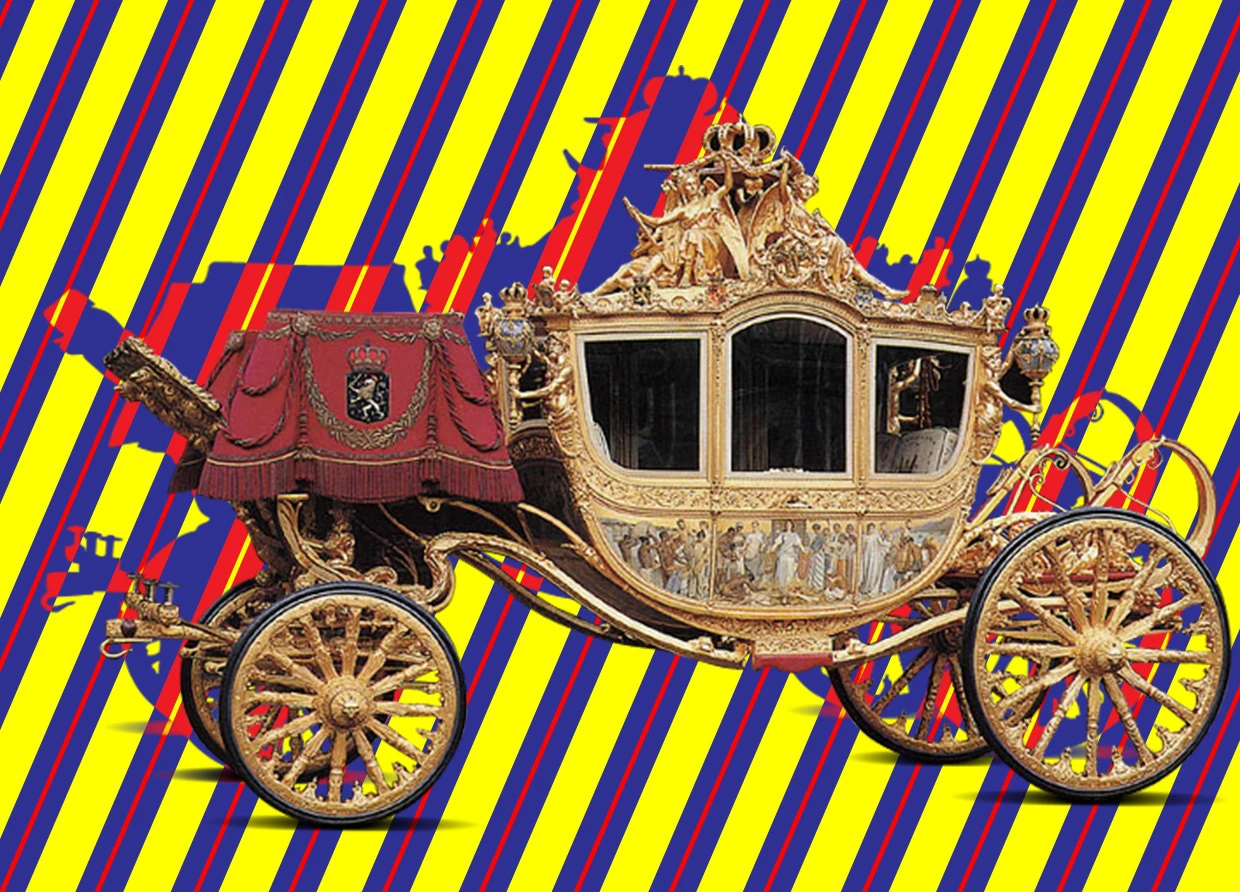THE STORY OF THE DUTCH GOLDEN COACH
The Golden Coach of Netherlands draws fiery criticism over its relation to colonization.

The Golden Coach, or Gouden Koets, is a customized carriage used and owned by the Dutch royal family. It's made of teak wood and has paintings by Nicolaas van der Waay. When it's operational, the coach is pulled by eight horses.
In 1898, the Golden Coach was presented to Queen Wilhelmina on her 18th birthday, who would become the first female monarch of The Netherlands. It is usually used on Prince's Day, the third Tuesday in September. The royal carriage is also used for other high-profile occasions, such as weddings and inaugurations.
View this post on Instagram
According to the Amsterdam Museum, one of the panels on the Golden Coach, "Tribute from the Colonies", depicts people of color kneeling to a white woman — supposedly representing the Netherlands — while presenting gifts to her.
In 1990, Curaçaoan artist Ruben La Cruz protested against the colonial vignette in a festival in Rotterdam, which led to calls for the carriage to be removed by an activist and two members of the Dutch parliament. The demands for the carriage removal grew louder after the Black Lives Matter protests in 2020 started.
Royal response to the criticism
In response to criticism over the royal family's use of the Golden Coach, King Willem-Alexander has said that the monarchy will stop using the vehicle until the Netherlands is ready to take the necessary steps toward reconciliation.
"Listening to and understanding each other are essential conditions for getting to reconciliation and taking away the pain in people's souls," King Willem-Alexander said in a YouTube video message. "The Golden Coach will be able to be driven again when the Netherlands is ready. And that is now not the case."
According to the king, as long as people in the Netherlands still feel the pain of discrimination, the past will always cast a shadow over their lives. In his speech, the king noted that all citizens should have the same opportunities and be proud of what has been built in the country. Overcoming this pain is a vital part of any reconciliation process.
View this post on Instagram
The king also noted that the country's colonial past contains learning materials that its people can use to avoid making similar mistakes in the future.
"We cannot rewrite the past. We can try to come to terms with it together. That also applies to the colonial past. Instead, a collective effort is needed that goes deeper and lasts longer. An effort that unites us rather than divides us."
#THE S MEDIA #Media Milenial



























